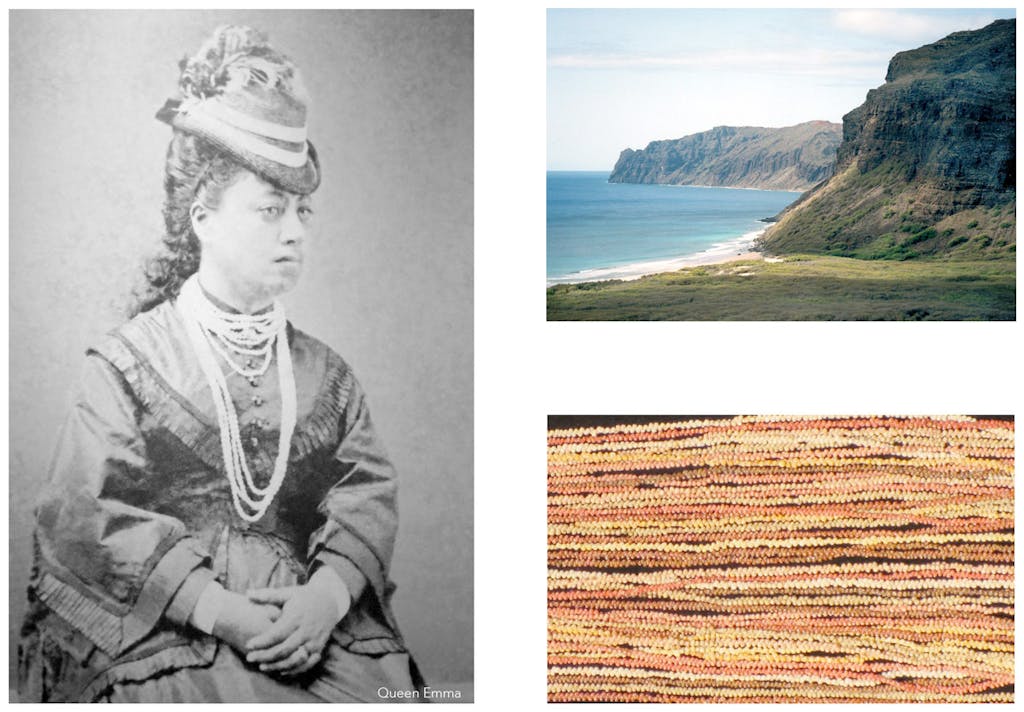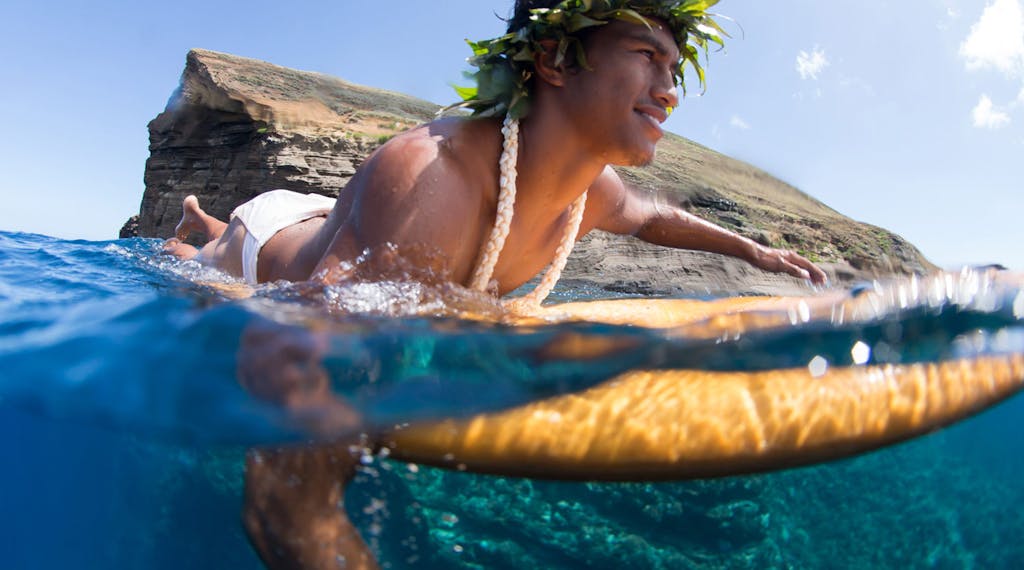- Most Popular!
On our signature tour, we’ll explore Kauai’s extraordinary Napali Coast, and then voyage across the channel to snorkel the world-class waters of Lehua Crater off the “Forbidden Island” of Niihau, all in one incredible day.
Niihau originally earned the nickname the “Forbidden Island” in 1952, during the polio epidemic, and the name stuck. It’s fitting, because it’s simply illegal for anyone that wasn’t born on the island to step foot on the island, and very few exceptions are made. It’s a mysterious and complicated place that conjures mixed feelings, for residents and outsiders alike.
In 1800, an extraordinary woman named Elizabeth Sinclair was born in Scotland. Over the course of her life, Sinclair married a ship captain, became a master navigator, and bought plantations and ranches in New Zealand, British Columbia, and eventually, on the west side of Kauai (Makaweli) and Niihau.
In 1864, Elizabeth Sinclair bought the island of Niihau from the Kingdom of Hawaii for $10,000 of gold. As part of the negotiation, she promised King Kamehameha V that she would always take care of the 1,000 or so Native Hawaiians that lived there (at the time), no matter the fate of the Kingdom.

To this day, Niihau is privately owned by two of Mrs. Sinclair’s descendants, brothers Bruce and Keith Robinson. Critics of the community cry “colonialism,” but the brothers insist that they’re preserving culture and protecting the islanders from the ills of modern life– fulfilling the wishes of King Kamehameha and the promise of their matriarch, Elizabeth Sinclair.
It’s estimated that around 150 Native Hawaiians inhabit Niihau today. Hawaiian is their first language, English is second. Free housing is provided by the Robinsons. People get around on horseback, cook on kerosene stoves, and use outhouses. Among things prohibited are alcohol, drugs, guns, beards, long hair, tattoos, and piercings. There is no law enforcement on Niihau, any disputes are solved by the pastor. People who break the rules or question the norms risk being banished from the island forever.
So how do the Robinsons afford to pay taxes on the island and finance this unique community? Well, it hasn’t always been easy but these days, it’s government contracts and a little bit of tourism.
Over time, the original business of cattle and sheep ranching became unviable, and the Niihau Ranch closed in 1999. Other endeavors attempted by the Robinsons such as honey cultivation and charcoal exporting also proved unfeasible.
Today, one small U.S. Navy installation high on Niihau’s cliffs brings in millions of dollars a year and provides a stable economic base for the island. In addition, private tours and hunting safaris are operated (from Hanapepe) with a helicopter that was purchased by the Robinsons in the 1980s for medical emergencies. It’s said that the tours give limited insight into life on Niihau—contact with residents is avoided and no accommodations exist.

Niihau is famous for its pūpū shells and jewelry. Pūpū are small white shells that wash ashore in winter months and a single authentic Niihau pūpū lei can sell for thousands of dollars.
The island’s residents subsistence fish and hunt, help maintain the Navy facility, collect shells and make jewelry to be sold off-island, rely on canned food shipments from Kauai (paid for by the Robinsons), and also, as U.S. citizens are eligible to collect welfare.
The island’s residents subsistence fish and hunt, help maintain the Navy facility, collect shells and make jewelry to be sold off-island, rely on canned food shipments from Kauai (paid for by the Robinsons), and also, as U.S. citizens are eligible to collect welfare.
Logically, everyone on the island is related and there’s a hierarchy of power. Some people wouldn’t consider leaving the 70 square-mile island, some, curious about modern life, choose to leave, and still, others find themselves stricken from the community forever.
Some people call it a beautiful preservation of Native Hawaiian culture, some call it hypocritical, some call it modern imperialism; the labels you could put on Niihau are endless and here at Holo Holo, we don’t consider ourselves qualified to make a meaningful judgment.
We just call it an epic place to take our boat and go snorkeling!



